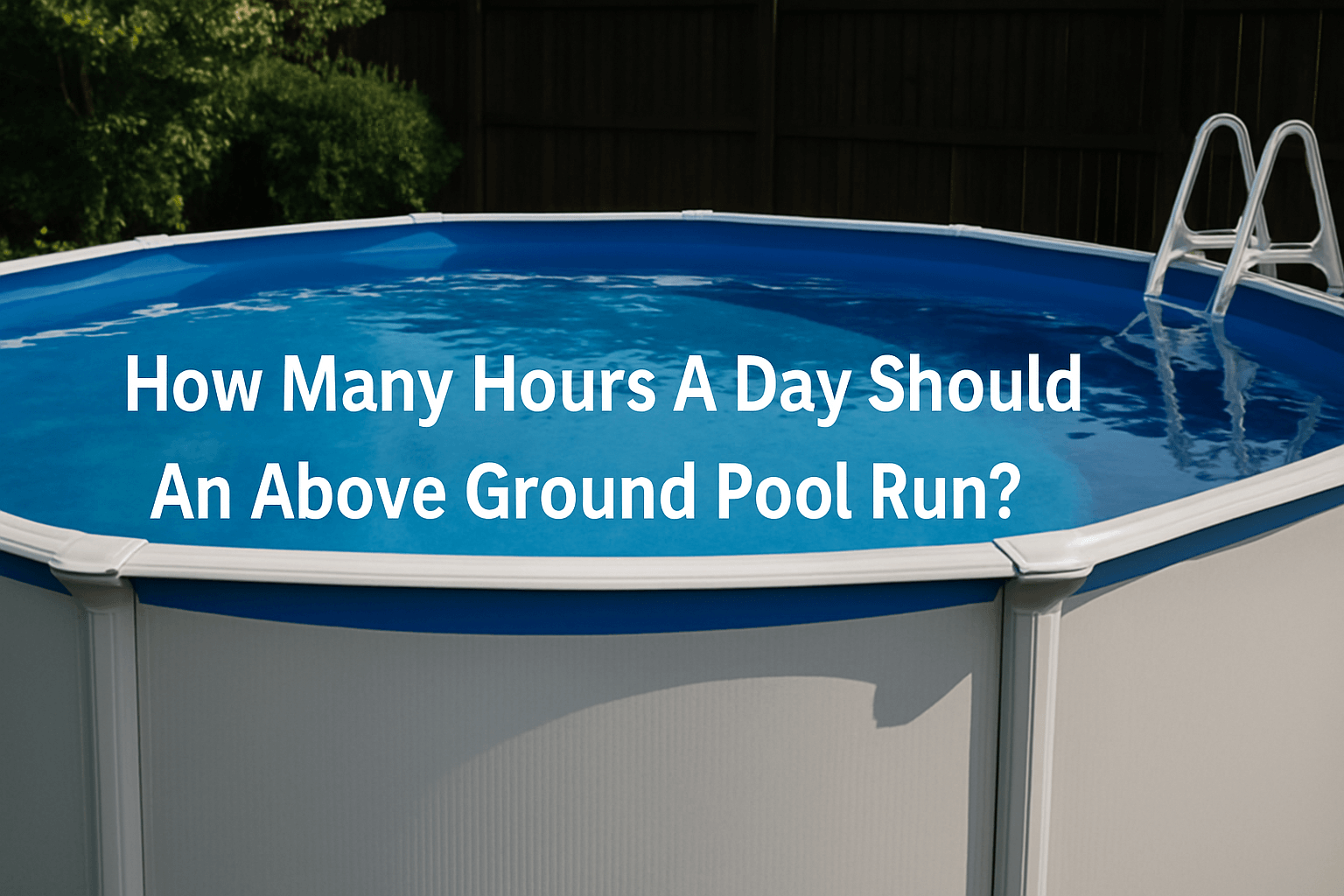
How Many Hours A Day Should An Above Ground Pool Run?
Ever feel like your pool pump is on a mission to outwork you?
Whether it’s an above ground container pool or other pools, the magic number is around 8 hours a day. That’s enough to keep the water clear, chemicals balanced, and algae at bay.
But here’s the twist—this isn’t a one-size-fits-all rule. A hot summer weekend with friends splashing about will need more filtration than a quiet Tuesday in April. Stick around and I’ll walk you through how to fine-tune those hours so you keep your pool fresh without wasting electricity.
Understanding Your Pool’s "Turnover Rate"
What is pool turnover and why is it important?
Think of your pool pump as a merry-go-round for water. Turnover is simply how long it takes for all the water to do one full lap through the filter.
If turnover is too slow, dirt and bugs get a free holiday in your pool. Too fast, and you might be burning through power without much benefit. Getting it right keeps the water sparkling and the chemicals evenly spread.
Calculating the ideal run time for your specific pool
Here’s the simple formula:
Turnover Rate = Pool Volume ÷ Pump Flow Rate
Say you’ve got a 30,000-litre pool and a pump that shifts 4,000 litres an hour. That’s just over 7 hours for one turnover. Round it up to 8, and you’re in the safe zone. If you’re running a pool that’s used daily by a crowd, you might even double that time during peak season.

Factors That Affect Pump Run Time
Pool size and pump horsepower
Size matters here—big pools need more time to get every drop through the filter.
A powerful pump will move water faster, but it can also guzzle electricity. An efficient pump strikes a nice balance, cleaning thoroughly without giving your energy bill heart palpitations.
Bather load and weather conditions
A Saturday with six kids cannonballing into the water? Expect extra run time. The more swimmers, the more sunscreen, hair, and snacks floating around in there.
And don’t forget the weather. Sunny spells can fuel algae growth, while rain dumps debris and can throw your chemical balance off. Both are good reasons to keep the pump going longer.

Tips for Efficient Pump Operation
Should I Run My Pump 24/7?
The drawbacks of continuous pump operation
Tempting as it is to “just keep it on”, running your pump 24/7 is a bit like leaving the oven on all day—unnecessary and expensive. Yes, your water will stay pristine, but your electricity meter will be spinning like a hamster wheel on espresso.
Saving money and energy
Instead, match your pump’s schedule to the pool’s needs. In cooler months or when it’s barely used, trim the hours. Switching to a variable-speed pump can also slash costs—they run slower for longer, which uses less power without sacrificing cleanliness.

The Best Time to Run Your Pump
Running the pump during the hottest part of the day
Midday sun is a party invitation for algae. Running your pump when the heat peaks keeps the water moving, the chlorine circulating, and those green blooms from setting up shop.
The benefits of running the pump overnight
Night-time pumping has its perks too—cooler water, lower evaporation, and in some areas, cheaper off-peak electricity. Plus, it’s blissfully quiet without daytime splashes and squeals.
Using a timer to automate the process
A timer is like having a personal pool assistant. Set it and forget it—your pump will tick along at the right hours every day, keeping your water clean while you get on with life.
Final Word
Finding your pool’s sweet spot isn’t just about sticking to “8 hours a day”. It’s about knowing your pool, watching how it behaves, and making small tweaks through the year.
The goal? Clear water, happy swimmers, and an energy bill that doesn’t make you wince. Keep it clean, keep it efficient, and your pool will be ready whenever you fancy a dip—whether that’s a lazy Sunday float or a full-on family splash fest.
Have you checked out our other posts?
How To Cool Above Ground Pools?
How to Winterize Above Ground Pool?
How To Drain Above Ground Pool?
How To Level An Above Ground Pool?
Should I Cover Above Ground Pool?
When Closing Above Ground Pool?



Leave a comment